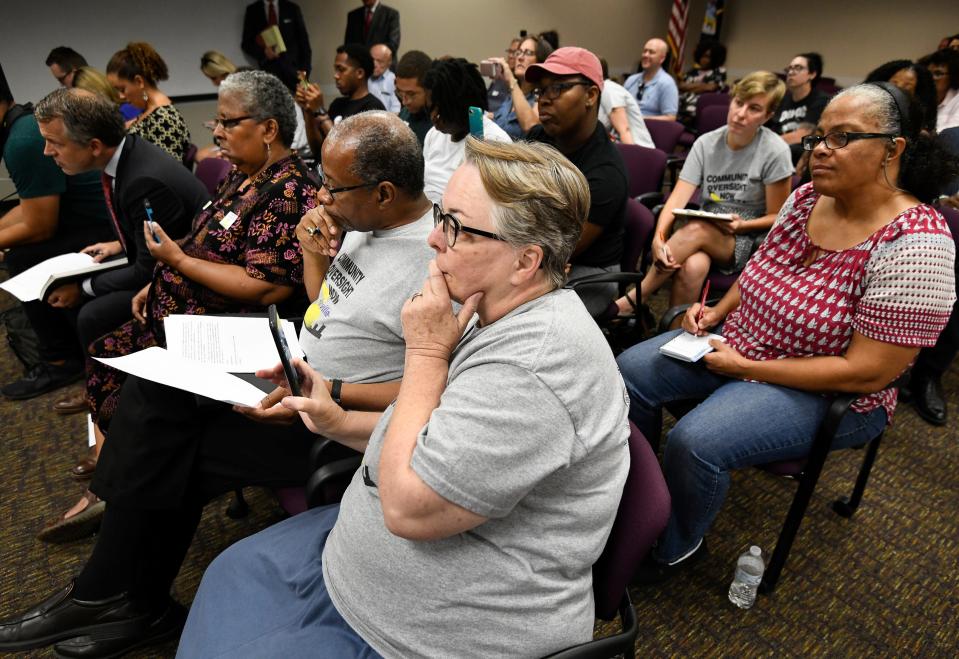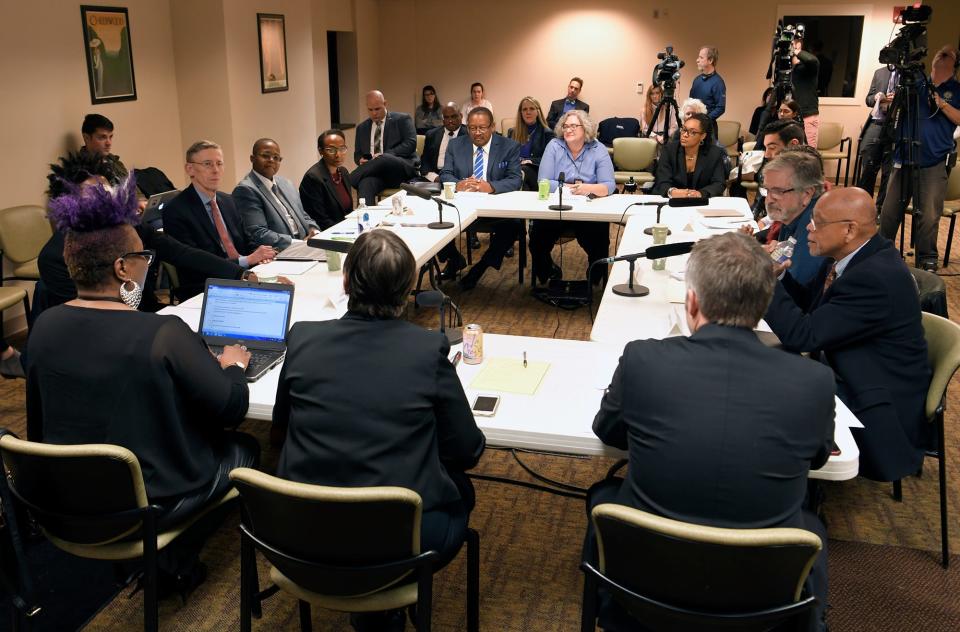Nashville must rework its police oversight under a new state law. Here's what's proposed.
The future of the Community Oversight Board in Nashville remains in the hands of the Metro Council, where proposed legislation re-establishes the organization but curtails its power to meet the restrictions of a new state law.
The council Thursday voted 32-0 on the bill's second reading. A third reading is required for passage.
Though Nashville's oversight board will look drastically different moving forward, council member Sharon Hurt said Thursday she was proud the council respected the voices of the community.
"I'm asking my colleagues to support this effort to let the people know that their voices do matter," Hurt said.
"I just want to say thank you so much to our COB staff and the board for working together and helping us put this together as effectively as possible," council member Jeff Syracuse said Thursday. "I think we really got it right."
Gov. Bill Lee signed a bill in May effectively banning oversight boards as we know them. Nashville's model of oversight was created after Davidson County residents passed a charter amendment in 2018 to create the board.
The amendment was motivated in part by two shootings of Black men by white police officers. The amendment gave the board investigative and compulsory powers to review arrests and public complaints.

More: Why an uncertain future caused Nashville's police oversight board chair to resign
The new state law states oversight boards can still exist, but only at the behest of government entities. Metro Council must adopt an ordinance by a two-thirds vote at two separate meetings by Oct. 29 or the board will be no more.
The proposed legislation before the council would change the current model and make it similar to that of Knoxville's Police Advisory and Review Committee. The organization reviews cases after police determine investigatory findings from complaints.
The proposed legislation outlines several changes to the current model of police oversight.
Membership reduced
The board, to be renamed the Metropolitan Community Review Board, will have seven members, according to the legislation. Currently, the board has 11 members.
Nashville's mayor will appoint all board members, though that person may consider nominations by community organizations, private petition or council members. Each appointment must be confirmed by a majority vote from the Metro Council.
Previously, the mayor only appointed two board members with a majority council vote.

Complaint investigation process
The complaint process will also drastically change. Currently, complaints are submitted to the board for evaluation, investigation and resolution. The board can find the complaint sustained or unfounded and issue a disciplinary or policy recommendation if necessary.
The chief still has wide breadth to accept or reject any disciplinary recommendations made by the board.
Under the proposed legislation, that is no more.
The executive director will still collect complaints against the Nashville police but then must forward them to the department's office of professional accountability within three business days for investigation.
Once an investigation is complete, the review board's director will read the file and decide if the investigation is sufficient and report findings to the board. If the board agrees an investigation is insufficient, by a majority vote they can request the chief conduct further investigation and have the case returned to the department.
The legislation does not say what, if any, actions the chief or department must take if a case is sent back to them by the board.
The board also will no longer have the power to "direct the chief of police to alter or impose disciplinary action against any employee" of the police department.
What cases are off limits?
According to the proposed legislation, complaints about police activity from before Jan. 1 will not be reviewed.
During the May meeting, the board's legal advisor, Daniel Yoon, said there were 48 open complaints. The board hoped to process 10 cases a month, prioritizing cases that may raise policy issues within the Metro Nashville Police Department. But any cases that stem from before the start of the year will have to be dropped if the proposed legislation is adopted as it's written.
The future board will also be prohibited from reviewing cases that:
the police department has not completed its investigation
is part of a criminal investigation
the complainant, officer or a witness is in the process of pursuing a remedy through the civil service commission
the complainant has initiated, threatened or given notice of the intent to file a lawsuit against Nashville's government or any employees
This article originally appeared on Nashville Tennessean: Nashville Council considers new structure for police oversight board

